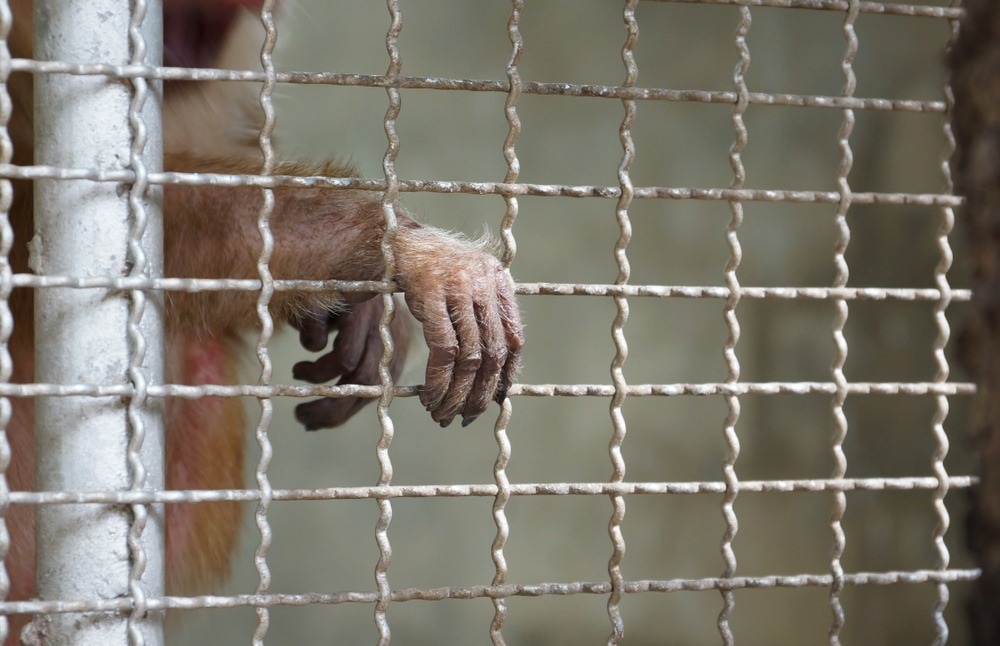This was done against the backdrop of the negotiations on a pandemic treaty and the prevention of zoonotic spillovers from the wildlife trade for human consumption.

Study: Global governance for pandemic prevention and the wildlife trade. Image Credit: wk1003mike/Shutterstock.com
Background
During the coronavirus disease 2019 (COVID-19) pandemic, governance has focussed on preventive actions for pandemics, mostly focused on containment, outbreak surveillance, and response.
However, insufficient consideration has been given to operationalizing these ideas through governance structures for wildlife trade. An immediate shift towards preventing zoonotic spillovers is essential to prevent future outbreaks.
About the study
Both domestic and international wildlife trade for human consumption is a driver of zoonoses, with the potential to cause pandemics.
Recent calls to change wildlife trade have been raised during the COVID-19 pandemic, but less attention has been given to governance structures, such as health governance, food governance, trade governance, and biodiversity governance.
In light of potential negotiations of a so-called pandemic treaty, the current study proposes institutional design principles, which could aid coordination across policy domains for preventing zoonotic spillovers from the trade of wildlife for human consumption.
Wildlife trade for human consumption was chosen as it is a possible cause of the COVID-19 pandemic. Other zoonotic drivers of pandemics, such as land-use change and domestic animal production, were excluded from this study.
The current institutional landscape
Governance across health, food, trade, and biodiversity emerged in the early 1900s and became cemented with the creation of the United Nations after the second world war.
The core institutional areas are World Trade Organization (WTO) in the case of international trade, the Food and Agriculture Organization (FAO) for food security, WHO, and World Organisation for Animal Health (WOAH) for public health.
Finally, for biodiversity, the institutions are the Convention on Biological Diversity, the Convention on the Conservation of Migratory Species of Wild Animals, and the Convention on International Trade in Endangered Species of Wild Fauna and Flora (CITES).
The road ahead for pandemic prevention
Despite international health regulations and the quadripartite partnership on one health, a new pandemic treaty is under consideration, which the Chilean government first proposed in April 2020.
The institutional design principles for zoonotic spillover prevention could be codified in four goals, namely, risk understanding, risk assessment, risk reduction, and enabling funding.
Risk Understanding: Improving knowledge of zoonoses is fundamental in preventing pandemics. More research is needed to reduce the uncertainty about the relative risk of zoonotic spillovers.
The Intergovernmental Science-Policy Platform on Biodiversity and Ecosystem Services has proposed the establishment of a policy-relevant science platform.
This platform should improve knowledge of the risks of zoonoses, develop a framework for monitoring and risk evaluation, conduct an impact evaluation of interventions, and reach a consensus on the perception and acceptance of risk.
Risk Assessment: Baseline data on each country is needed to assess the risk. To that end, any international institutional arrangement should encourage self-reporting on wildlife trade's entire networks and supply chains and the corresponding regulatory frameworks and funding available.
The Global Health Security Index could be used to assess the risks from wildlife trade for human consumption by including more specific metrics from the policy-relevant science platform.
Risk Reduction: For legal wildlife trade, which is intrinsically unregulated, improved governance frameworks are needed, including incentives and sanctions.
Some prescriptions could involve reducing the demand and supply of taxa bearing high zoonotic risk, improved management of supply chains, and evidence-based bans on trading certain types of wild meat for human consumption.
The evidence should be obtained from the policy-relevant science platform to ensure effectiveness.
Enabling Funding: The funding for addressing pandemics is inadequate, insufficient, and fragile. Additional stable funding will be needed to further each of the three previously mentioned goals.
In early 2021, two key initiatives were created: the G20 Panel on Financing the Global Commons for Pandemic Preparedness and Response and the WHO Working Group on Sustainable Financing.
A Global Pandemic Financing Facility could also be established. This would benefit from contributions from donor countries and draw on lessons from the Global Environmental Facility.
Conclusions
Pandemics highlight multiple institutional failures, which require a strong governance response. The international community should act soon while the devastating effects of the COVID-19 pandemic are still tangible.
During crises, resources are predominantly deployed to mitigate them, so this might not be the ideal time for institution building.
However, the between-crisis episodes should not be under-utilized to strengthen existing frameworks and develop new ones.
In this spirit, the current study advocates using the impetus given by the current pandemic to bolster the international system for pandemic prevention. This could be an iterative and cooperative process, and developing all details in the immediate future is unnecessary.